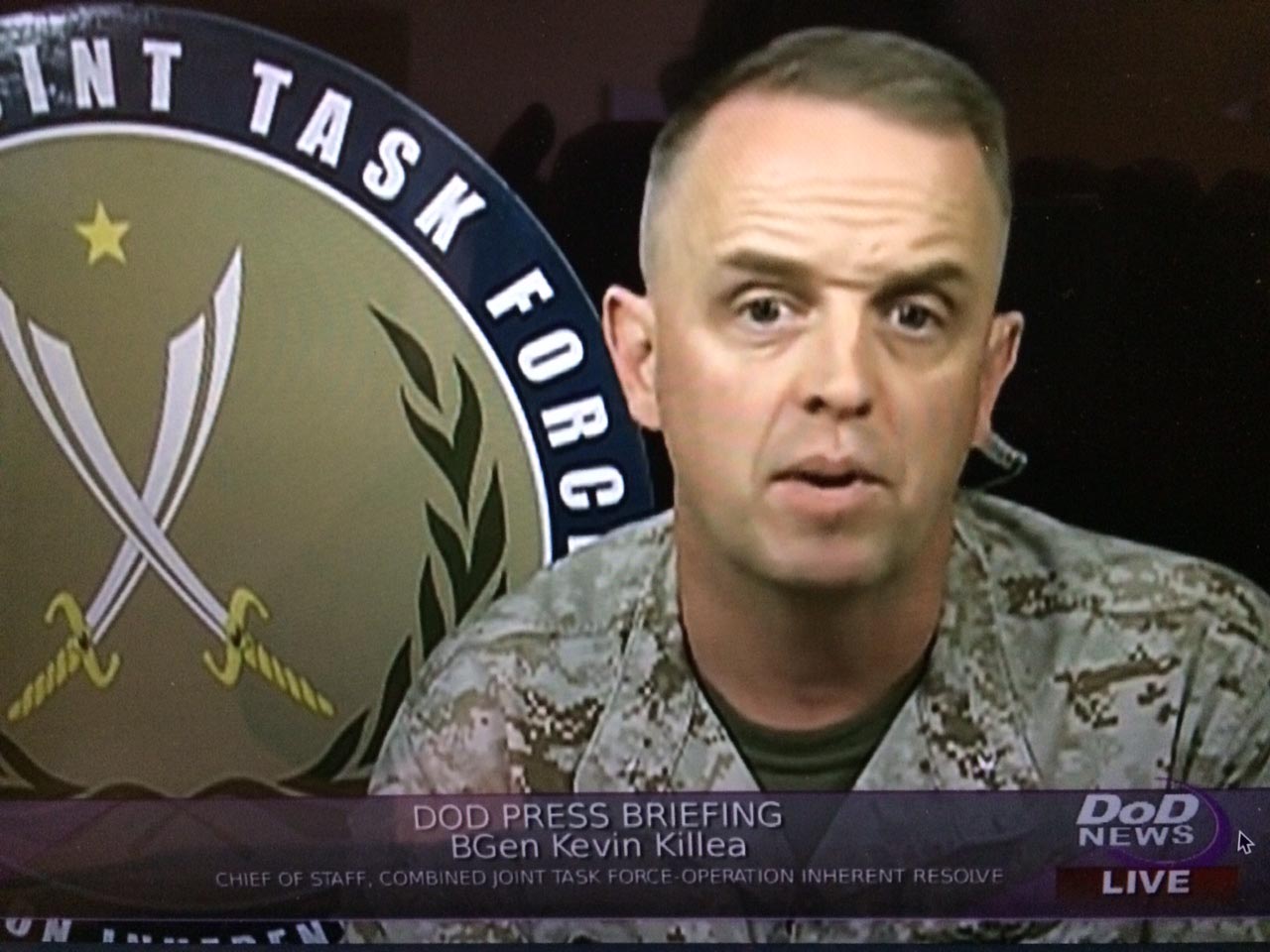By Cheryl Pellerin DoD News, Defense Media Activity
WASHINGTON, September 4, 2015 — Turkey’s help in the fight
against the Islamic State of Iraq and the Levant has broadened the reach of the
coalition, Marine Corps Brig. Gen Kevin J. Killea, chief of staff of Combined
Joint Task Force-Operation Inherent Resolve, said today.
Killea spoke live from Southwest Asia to media members
during a digital video conference, offering an update on CJTF-OIR operations in
Iraq.
Last week, Turkey began conducting anti-ISIL air strikes
after its contributions were formalized as part of the CJTF-OIR process
necessary for integrating coalition members into the fight.
“Turkey's entry into CJTF operations, along with our ability
to base attack platforms out of Incirlik [Air Base], has significantly
broadened our capabilities by increasing flexibility and targeting and
target-area coverage overall,” Killea said.
Broadening Capabilities
“Our Turkish military counterparts are now included in the
CJTF air-tasking order,” he added, “resulting in a seamless level of
coordination and synchronization of air operations.”
This latest contribution in the ongoing partnership with
Turkey will ensure more operational integration and successes, the general
added, calling it another example of partner nations working toward the common
goal of defeating ISIL.
Some of ISIL’s deadliest weapons on the ground are
improvised explosive devices and vehicle-borne IEDs, which Killea called a
constant threat facing the Iraqi forces.
“IEDs have consistently been a leading cause of casualties
for [Iraqi] forces and have contributed significantly to slowing the pace of
operations in places like Ramadi,” the general said.
Pace of Operations
During the time it took Iraqi forces to launch a
counterattack in Ramadi against the extremist militant group, ISIL was able to
cover the area with IEDs and other obstacles, Killea said. The Iraqis are now
methodically clearing those devices as they close on the city along multiple
avenues of approach. Ramadi, he added, is still a hotly contested area.
CJTF-OIR is “keenly aware” of the significant counter-IED
fight the Iraqi forces are now engaged in and expect to face in future
operations, the general said.
Over the past several months CJTF has prioritized issuing
counter-IED equipment to the Iraqi forces in the form of bulldozers,
mine-clearing equipment, anti-armor weapons for the vehicle-borne IED threat
and other assured mobility assets, he added.
Coalition Training
At the same time, he said, coalition training “has
paralleled the equipping efforts by deploying counter-IED training teams to
augment other trainers at Taji, Besmaya and Asad. More than 8,000 Iraqi army
and Peshmerga soldiers have trained in various aspects of counter-IED
operations.”
This training, Killea added, is in addition to initial
training that more than 12,000 graduates have received as part of the four- to
six-week individual specialty courses given through a program called Building
Partner Capacity, or BPC.
This week, the general said, the 75th Iraqi Army Brigade
continued its latest block of instruction on coalition-provided weapons.
Tactical Proficiency
“In the next week we will issue weapons and equipment to
battalions of the 75th through the government of Iraq. This will lead to a
two-week training block on the use and maintenance of those weapon systems,”
Killea said.
Completing training for the 75th’s first battalion and
starting training for the second battalion “gets us closer to having a fifth
Iraqi Army brigade trained at a BPC platform,” he added.
The CJTF fully expects that such training will give the 75th
“the necessary level of tactical proficiency to provide the Iraqi army an
overall greater level of confidence in their operational capabilities,” Killea
said.








No comments:
Post a Comment